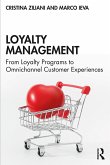In 2004 Kevin Roberts wrote Lovemarks: the future beyond brands. It was admired by many as a breakthrough in marketing thinking but was also controversial because of its surprisingly obvious thesis: that emotional connections are at the heart of sustained relationships between producers, retailers, and consumers. While many companies were using the language of war in their marketing (target, penetrate, ambush), Roberts was using the language of love (mystery, sensuality, intimacy). He explained in simple terms what people are often loath to admit: we make decisions with our emotions over our reason. Lovemarks described the journey by which brands could move from consumer respect based on intellect, to consumer love based on emotion-and in return gain "loyalty beyond reason." In 2010 Advertising Age magazine named Lovemarks one of their "ideas of the decade," while noting that the roadmap for brands to achieve Lovemark status was still not entirely clear. Loveworks: How the world's top marketers make emotional connections to win in the marketplace adds to the original Lovemarks by showcasing real-world business examples and outlining the roadmaps followed by several world-renowned brands to achieve Lovemark status: Procter & Gamble, Toyota, Visa, General Mills, Miller, T-Mobile, and Lenovo are just a few examples of businesses winning in the marketplace through the application of the Lovemarks theory, maintaining laser-like focus on making and sustaining emotional connections with consumers. Loveworks features 20 case stories from clients and markets worldwide in widely varying categories. "My book shows that Lovemarks thinking works-anywhere, anytime. All it takes is having the brains to implement it, the guts to see it through, and an abiding faith in emotion as your compass," says Brian Sheehan.
Hinweis: Dieser Artikel kann nur an eine deutsche Lieferadresse ausgeliefert werden.
Hinweis: Dieser Artikel kann nur an eine deutsche Lieferadresse ausgeliefert werden.

Erfolgreiches bis Anstößiges aus der Welt des Marketings
Der Einband des Buches kommt wie ein illusionistisches Gemälde aus dem 17. Jahrhundert daher: Vom oberen Rand baumelt aus zwei Ösen ein vermeintlich stabiler, roter Tragegriff, den man packen möchte. Neben dem Titel ist ein kleines Herz in einem Kreis appliziert, als sei das Ganze eine E-Mail. Und der schlichte Einband erinnert an eine Tüte, die bedeutsame Inhalte vor neugierigen Augen versteckt. Tatsächlich wird zwischen den Buchdeckeln im Packpapier-Look aus dem Nähkästchen der Werbebranche geplaudert. Anhand von 20 Fallgeschichten erzählt der Amerikaner Brian Sheehan, vormaliger Vorstandsvorsitzender von Saatchi & Saatchi, wie der britische Werberiese Windeln, Autos und Kaugummi zu heißgeliebten Sympathieträgern, sogenannten "Lovemarks", aufwertet.
Als andere Werber noch auf aggressive Kampagnensprache setzten, hatte Kevin Roberts, der aktuelle Vorstandsvorsitzende von Saatchi & Saatchi, im Jahre 2004 im Vorläufer-Buch "Lovemarks" ein Marketing-Konzept mit sanftem, suggestivem Namen proklamiert. Es gilt seitdem als Heilsweg, um emotionale Zustimmung für Produkte zu erringen. Angelpunkt sind dabei Geschichten, die Werber erzählen, um Erzeugnisse "geheimnisvoll, sinnlich und vertraut" zu machen. Sie sollen Konsumenten dazu bringen, Marken nicht nur zu schätzen, sondern zu lieben und nicht mehr entbehren zu wollen.
"Vielleicht können Menschen sogar stärkere Liebe für eine Marke empfinden als für einen anderen Menschen", räsoniert Brian Sheehan, heute Marketing-Professor an der New Yorker Syracuse-Universität. Eine kühne Hypothese, auch wenn Werbung schon seit langem Kundentreue über Emotionen zu wecken sucht. Wie die Agentur Saatchi & Saatchi diesen Ansatz ausbaut, beschreibt Sheehan an erfolgreichen Kampagnen unter anderem für Procter&Gamble, Toyota, Nike, Reebok, T-Mobile, Unicef, Ritz-Carlton und Visa. So steigerte eine gemeinsame Aktion mit dem Weltkinderhilfswerk Unicef das Ansehen der Marke Pampers in aller Welt verkaufsträchtig, und in China erhöhten gezielte Appelle an das extrem hohe Hygienebedürfnis junger Mütter den Marktanteil der Seifenmarke "Safeguard" auf 50 Prozent. Eine Kultfigur à la James Bond bewirkte in Nigeria, dass dort mehr Guiness-Bier getrunken wird als auf dem irischen Heimatmarkt.
Ein einheitliches Strickmuster für den Erfolg mit dieser Methode verrät Sheehan nicht. Jede Marke sei anders, sagt er. Sein heißer Tipp ist digitales Marketing über soziale Netzwerke wie Facebook, Twitter und Youtube. Nie sei es einfacher gewesen, zu einer "Lovemark" zu werden, allerdings auch niemals leichter, den Status wieder zu verlieren: "Ohne die richtige Message ist Big Data reine Zeitverschwendung."
Bleibt die Frage, ob Sheehans bilderreicher Text auch Zeitverschwendung ist. Optischer Trug hatte einst metaphysischen Beigeschmack und Banalität dort philosophische Aspekte - je belangloser die dargebotenen Requisiten, umso stärker war der Eindruck von Sinnlosigkeit und Leere. Das gilt auch für Sheehans stellenweise beeindruckende, manchmal sogar anrührende Publikation, die den Leser jedoch am Ende einigermaßen ratlos zurücklässt. Zweifellos verfügt die geschilderte Branche über ungeheure Marktmacht und weiß sich geschickt zu inszenieren - bis hin zum Gutmenschentum.
Das zeigt die S&S-Kampagne "Mutual Blood", die 2010 zur Befriedigung von Israelis und Palästinensern beiderseits Spenderblut einsammelte und über Kreuz einsetzte, unterstützt von dem Spruch auf T-Shirts: "Würdest Du jemand verletzen, der Dein Blut in den Adern trägt?" Doch der ansonsten geschilderte Aufwand, mit dem kommerzielle Marken die vermeintliche Liebe ihrer Kundschaft und so Marktführerschaft erringen sollen, hat leider etwas abstoßend Klebriges.
ULLA FÖLSING.
Brian Sheehan: Loveworks.
House Books, Brooklyn 2013, 192 Seiten, 22,70 Euro
Alle Rechte vorbehalten. © F.A.Z. GmbH, Frankfurt am Main








